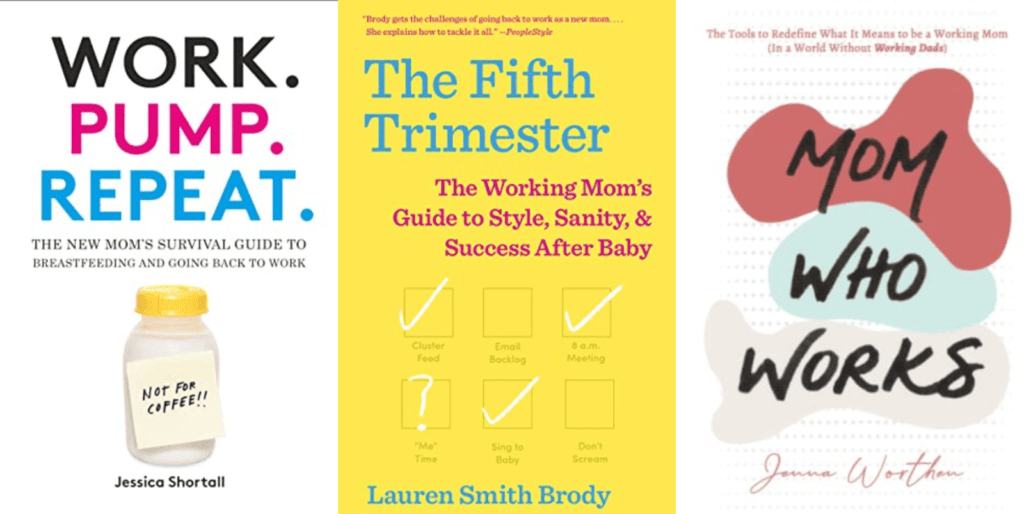This post contains some of the best mental health tips for moms.
Challenges Faced By Moms In Maintaining Good Mental Health
Maintaining good mental health can be challenging for moms due to various factors.
Some common challenges faced by moms in maintaining good mental health include:
1. Sleep deprivation
Lack of sufficient sleep, especially during the early stages of motherhood, can have a significant impact on a mom’s mental well-being.
Constantly disrupted sleep patterns can lead to fatigue, irritability, mood swings, and difficulty concentrating.
2. Hormonal changes
Pregnancy and childbirth cause significant hormonal fluctuations, which can affect a mom’s emotional state.
The sudden drop in estrogen and progesterone levels after giving birth can contribute to mood swings, postpartum depression, and anxiety.
3. Postpartum mental health disorders
Conditions like postpartum depression (PPD) and postpartum anxiety (PPA) are prevalent among new mothers.
PPD and PPA can cause persistent feelings of sadness, hopelessness, anxiety, excessive worry, or panic attacks, making it more challenging to maintain good mental health.
4. Adjusting to motherhood
The transition to motherhood involves adapting to new responsibilities, lifestyle changes, and an increased demand for time and energy.
This adjustment process can be overwhelming and may lead to feelings of stress, self-doubt, and a loss of personal identity.
Related: Best 20 Time Management Tips for Working Moms
5. Societal expectations
Society often places unrealistic expectations on mothers, such as being the perfect caregiver, maintaining a spotless home, and balancing multiple roles effortlessly.
The pressure to meet these expectations can cause stress, guilt, and a sense of inadequacy in moms.
6. Feelings of isolation
Being a mom can sometimes feel isolating, especially if a mom lacks a support system or feels disconnected from friends and family.
Isolation can contribute to feelings of loneliness, sadness, and negatively impact mental health.
7. Self-care challenges
Moms often prioritize their children’s needs over their own, neglecting self-care activities that promote mental wellness.
A lack of time and guilt associated with taking time for oneself can prevent moms from engaging in activities that rejuvenate and recharge them mentally and emotionally.
Related: How to Overcome Working Mom Guilt?
8. Balancing multiple roles
Many moms juggle multiple roles and responsibilities, including parenting, work, household tasks, and caregiving.
The constant juggling act can lead to feelings of overwhelm, stress, and a sense of never-ending demands, affecting mental well-being.
9. Guilt and self-blame
Moms often experience guilt or self-blame when they perceive themselves as falling short in any aspect of motherhood.
This guilt, whether justified or not, can negatively impact their self-esteem and mental health.
Related: Best 12 Meal Planning Tips For Busy Moms
Mental Health Tips for Moms
Motherhood can bring immense joy and fulfillment, but it can also be challenging and overwhelming at times.
Taking care of your mental health is crucial to ensure you can be the best version of yourself for both you and your family.
1. Practice Self-Care
Make self-care a priority by dedicating time each day to activities that bring you joy and relaxation.
Whether it’s taking a bath, practicing mindfulness or meditation, reading, or engaging in hobbies, carving out time for yourself helps recharge your emotional batteries and reduce stress.
2. Establish a Support Network
Reach out to family, friends, or other moms who can provide support and empathy.
Sharing experiences, venting frustrations, or simply talking about your day can be incredibly therapeutic.
Additionally, consider joining local mother’s groups or seeking online communities where you can connect with others facing similar challenges.
Related: Best 20 Tips for Single Moms
3. Set Realistic Expectations
Society often places unrealistic expectations on mothers, which can lead to feelings of guilt or inadequacy.
Remember that there is no perfect way to do things, and it’s okay to ask for help or make mistakes. Set realistic expectations for yourself and focus on progress rather than perfection.
4. Prioritize Sleep
Lack of sleep can significantly impact your mental health.
Prioritize good sleep habits by establishing a bedtime routine and creating a conducive sleep environment.
If possible, share nighttime responsibilities with your partner or ask for support from loved ones, allowing you to get sufficient rest.
Related: Stay At Home Mom Schedule (+Free Printables)
5. Practice Mindfulness and Stress Management Techniques
Mindfulness practices such as deep breathing exercises, meditation, and yoga can help alleviate stress and promote mental well-being.
These techniques can be incorporated into even the busiest schedules, providing moments of calm and clarity amidst the chaos.
6. Maintain a Healthy Lifestyle
Nourishing your body with a healthy diet and regular physical activity significantly contributes to better mental health.
Aim for a balanced diet rich in nutrients, and incorporate exercise into your daily routine, even if it’s just a short walk.
These lifestyle factors have been shown to reduce stress, boost mood, and improve overall well-being.
Related: Top 19 Hobbies for Stay at Home Moms
7. Delegate and Seek Help
You don’t have to do everything on your own.
Delegate tasks to other family members or ask for help when needed.
It’s important to recognize your limitations and understand that reaching out for support does not make you any less capable or loving as a mother.
8. Engage in Positive Self-Talk
Challenge negative self-talk and replace it with positive and compassionate thoughts.
Remind yourself that you are doing the best you can, and acknowledge your strengths and achievements.
Practice self-compassion, treating yourself with the same kindness and understanding you would show a dear friend.
Related: Best 8 Books For Stay At Home Mom
9. Maintain Boundaries
Setting boundaries is crucial to protect your mental well-being.
Be mindful of your limits and learn to say no when necessary.
Prioritize your own needs and ensure that you are not overextending yourself to the point of burnout.
10. Practice Gratitude
Take a few moments each day to reflect on things you are grateful for.
This simple practice can help shift your focus to the positive aspects of your life and increase feelings of contentment and happiness.
11. Establish Routines
Creating structured routines for yourself and your children can provide a sense of stability and reduce stress.
Having regular meal times, bedtimes, and designated times for activities can help create a sense of order and predictability in your day.
Related: Top 12 Benefits of Stay At Home Mom
12. Find Meaningful Activities
Engage in activities that give you a sense of purpose and fulfillment beyond motherhood.
Pursuing hobbies, volunteering, or engaging in creative outlets can provide a sense of personal accomplishment and fulfillment.
13. Embrace Imperfection
Understand that perfection is an unrealistic goal, and allow yourself to embrace imperfections.
Let go of the pressure to be the “perfect” mom and focus on the love and care you provide for your children.
Related: Best 100 Self-Care Ideas to Try
14. Set Aside Quality Time with Your Partner
Nurture your romantic relationship by setting aside dedicated time for you and your partner.
Whether it’s a date night, quality conversations, or simply enjoying shared activities, maintaining a strong connection with your partner can positively impact your overall well-being.
15. Laugh and Have Fun
Don’t forget to incorporate laughter and fun into your daily life.
Engage in playful activities with your children, watch funny movies, or find reasons to laugh each day.
Laughter has been shown to reduce stress and improve mood.
Related: Best 18 Self Care Night Ideas
Conclusion
Prioritizing your mental health as a mom is vital for your overall well-being and the well-being of your family.
By incorporating these evidence-based tips into your daily routine, you can nurture a positive and resilient mindset, while also instilling healthy coping strategies for your children.
Remember, taking care of yourself is not selfish; it’s an essential part of being the best mom you can be.




